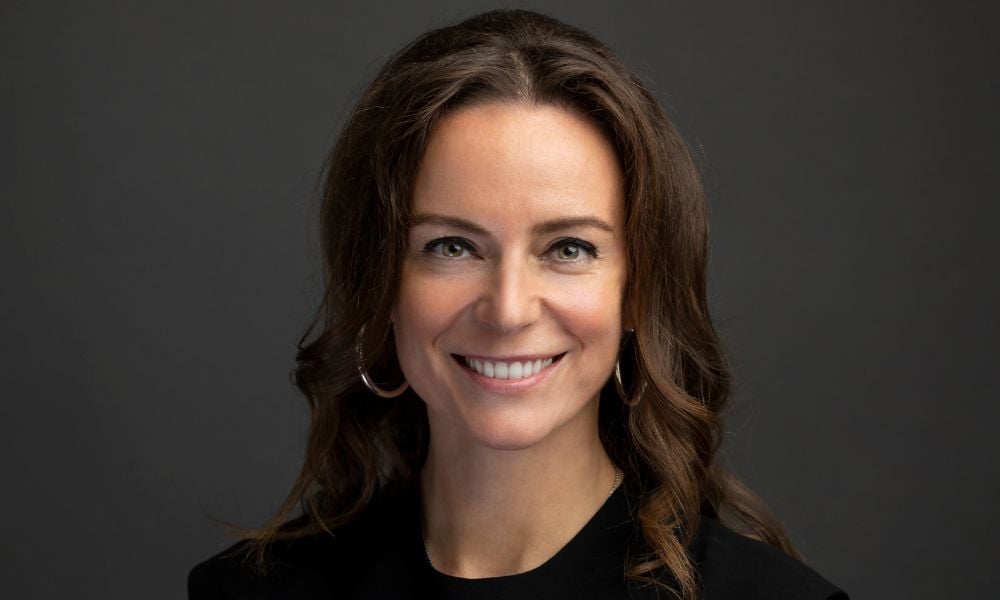The Iraq war has presented Australia’s defence forces with a unique set of challenges. Craig Donaldson speaks with Colonel Peter Davies about the personnel management challenges and lessons learned on the frontline in Iraq
The Iraq war has presented Australia’s defence forces with a unique set of challenges. Craig Donaldson speaks with Colonel Peter Davies about the personnel management challenges and lessons learned on the frontline in Iraq
Managing personnel is difficult in any large corporation, but not usually a matter of life and death. For Colonel Peter Davies, Chief of Staff for the Australian Defence Force in Iraq, every day of a soldier’s deployment must be handled with extreme care.
The challenges start with the rotation of troops in the field, who are deployed either as a big group or individually. All soldiers complete a Reception, Staging, Onward movement and Integration (RSOI) program that tackles issues such as the Middle East climate (which has averaged around 40 degrees over the past few months), equipment detail, medical and dental checks as well as weapons handling checks.
“We spend a lot of time making sure that they can handle their weapons properly,” says Colonel Davies. “We take them down the range to practise shooting in Middle Eastern climates. When dust storms come up here, it’s quite a unique experience and you need to know your stuff when it comes to weapons.”
Officers also run through the issues specific to living in the Middle East with soldiers. For instance, officers will run through the rules of engagement to make sure soldiers completely understand when they can open fire, when they can’t open fire and how they should deal with situations should they occur, Colonel Davies says.
Officers also cover safety with the troops, looking at issues around force protection and how to reduce risks. At times, Defence will override missions if it thinks troops are going to do something that raises their risk level to too high a standard. “Obviously bringing our people home alive is a very high priority for us,” he says.
Soldiers are then allowed into the area of operations for four to six days as a final check before deployment. Each mission is unique, and Colonel Davies gives the example of a security detachment looking after an ambassador. “If they were going to Baghdad itself, the existing security detachment there will do a handover as a group. The new detachment will take over their duties, and we’ll spend a lot of time making sure they’re aware of the surroundings in Baghdad, they understand the latest tactics, techniques and procedures to operating in the Baghdad area and when they are driving out into the red zone,” he says.
Within Baghdad there are green and red zones. Green zones are protected, and all embassies are located within the green zone, which is the major part of the American headquarters. Outside the green zone is the red, or unprotected zone. “For example, our ambassador has to work with the Iraqi government and other organisations at times, and a lot of their buildings are outside the green zone. When he moves out into what we call the red zone, he goes protected by Australian soldiers, or the security detachment,”says Colonel Davies.
Leadership in the field
As soldiers arrive in this intense environment, Colonel Davies says they very quickly come under quite significant pressure as they acquire new skills, different attitudes and experiences in becoming part of a new team.
“This produces probably a lot of issues you experience in a non-military environment. Under the pressure of working here, all your bad tradesmen come out very quickly,” he says. “One of the real problems is that you can’t get away from each other. We live, breathe, eat and work together 24 hours a day. So all those little personal idiosyncrasies come out, and we work very hard at maintaining a good sense of humour, and smoothing over some of the rough edges that will naturally tend to emerge at times under the sort of pressure we work with.”
Colonel Davies believes the small things are very important. At headquarters, for example, all senior officers clean their own toilets, sweep out their bed spaces, change their beds and tend to their personal duties. This helps encourage a sense of equality amongst the ranks. “On a Saturday afternoon, for example, I clean out the showers, toilets and laundry and assist in sorting out our living area. The way we live together is very crammed. I mean I’ve got a lot of senior officers all sleeping and living in what was once a palatial bedroom for someone, but now it’s got about 15 to 20 people in bunk beds crammed in together pretty tight.”
Sharing the same experiences across the ranks is important to Colonel Davies’ philosophy of leadership. “It’s about sharing with your people the experience that they’re sharing and trying to make them look good. At the end of the day, my job is not about looking good myself; it’s about helping and empowering the people who work with me to do their job to the best of their ability,” he says.
According to Colonel Davies, one of the key personnel issues that arises in Iraq is a fear of failure; of not achieving what the individual has been tasked to do. Sometimes, he says, this makes them overly cautious or more concerned about issues, which leads to stress. “My job is to take that fear of failure away and empower them, and if indeed I find people aren’t doing things in the right way, or they’re not fitting in well for one reason or another, then my job and the job of the senior officers here is to help them overcome those sorts of issues.”
Generational issues
Generational issues also come into play in Iraq, making the Defence Force no different from other large organisations. There are different styles of leadership and Colonel Davies believes this comes out more back in Australia. But upon arrival in Iraq, he says everyone is keen and determined to do a good job, Colonel Davies says.
“Over here they want to dive into the deep end and learn, see and do as much as they can. That sort of enthusiasm is fantastic and it’s good to harness,”he says. “Like anyone coming to a new job, the eyes are wide open initially and you are struggling at times. But you very quickly settle down and by the time you’ve had six months here you are very tired. It’s sometimes a bit of a trade off between those with more experience and the newer person coming in with less experience.”
Colonel Davies says younger people who have a desire to be mobile benefit from this experience, and once they’ve finished an operation, might look to do something entirely different. More and more nowadays in modern warfare, he says soldiers are very intelligent and many have got university degrees. “More often I’m finding they’ll teach senior officers lots of things too.”
Where young soldiers will go home and start looking at different careers, older soldiers tend to return to Australia and wake for their next deployment: “Older soldiers, who may have had a number of deployments, come with a better understanding of what they’re getting themselves into, so they’ll tend to fit in more easily initially,” he says.
The flipside of this coin is that soldiers with this experience are in demand. “You really want to keep them because it’s invaluable for moving forward for the next operation. I think we have to work a lot harder to retain people once they’ve been on operation,” says Colonel Davies.
Coping with stress
The Defence Force has learnt much about stress and soldiers on deployment over the past few years. There is a traditional chain of command where soldiers can talk to their superiors about issues, and Colonel Davies compares this to mentoring programs that occur in private enterprise. Chaplains and padres also travel regularly to talk to people and help them through issues that might arise that they don’t want to talk to their superiors about, providing another avenue for release.
Psychologists also pay soldiers regular visits, particularly when they are getting ready to leave the field, helping them prepare for going back to Australia. “There are shocks when you go back home. Things are different, so they prepare them for that and check if they have been affected by what they’ve experienced,” says Colonel Davies.
If a commander believes that someone is having trouble for whatever reason, they are invited to go and see a psychologist. “Indeed I am finding nowadays that whereas once upon a time when I was a lieutenant 20 odd years ago, nobody would go anywhere near a psychologist, occasionally we get people asking to see a psychologist now. There’s no stigma attached to that and it’s a good process. It’s an outlet that allows people to get something off their chest.”
Many personnel also have families at home, and Defence has processes in place to assist them. In Colonel Davies’ case, he found out he was to be deployed for six months at short notice. His wife holds down a full-time job in addition to keeping four teenagers on the straight and narrow. “I don’t underestimate the major difficulty of that,” he says. “It’s a very difficult period for families, particularly when their spouse or partner is in a potentially dangerous situation.”
Colonel Davies says the defence units in Australia are like a big family, in a sense. The commanding officers of such units are charged with making sure they keep in regular contact with families. He believes one of the biggest problems back home, particularly for those people where they haven’t come as part of a unit rotation in Iraq, is that they become isolated. “It is very easy to become isolated in my experience, because if a wife is at home with a child, they need support.”
Defence also runs a National Welfare Coordination Committee, which keeps in contact with partners and spouses and provides a hotline for assistance. “Sometimes the lines of communication here break down, for example, so partners can ring up and ask what is happening. If nothing else, it’s just another means of communicating with the system to keep their minds at rest.”
For a lot of people, Colonel Davies says it’s just about having someone to put your problems to that may be aware of what you’re going through. “Unless you’ve been in a military family I don’t think you really understand what it’s like when the partner is deployed to a potentially dangerous area. You probably don’t know precisely where they are or what they’re doing day-to-day. You see all the news headlines and you just wonder how it’s affected them, and the normal fears come out. So the military nowadays has a lot of different mechanisms to deal with that,” he says.
Going home
The length of a deployment in Iraq varies. A lot of reservists are currently coming through, and depending on their availability they’ll serve anywhere from six weeks through to six months. “The sorts of people that are here for shorter tours are people with very scarce skills like a specialist surgeon or someone like that, and they can only give up four weeks to six weeks of their time,” says Colonel Davies. Regular soldiers, airmen or sailors length of deployment also varies. Most serve for four to six months while the occasional individual will sometimes spend up to 12 months in theatre, he says.
All personnel are required to undergo a psychological interview upon returning to Australia, along with one or two medical reviews. Colonel Davies also says some units require personnel to serve an extra week back in Australia to work through administration issues and monitor how individuals are adjusting to civilian life after the intensity of operational service.
Another important thing for returning personnel is to be met at the airport, he says. “I’ve seen this a number of times myself, when people are coming back from various operations. It sounds silly, but the sheer fact of having someone meeting you at the airport, welcoming you, saying, ‘You’ve done a good job, you’ve served your country proud under dangerous circumstances.’ It seems to me to be a very important part of getting back into normal life. It’s amazing how rewarding an experience that is.”








